#varanidae
Explore tagged Tumblr posts
Text

Can I offer you a handful of lizards in these trying times?
Emerald Tree Monitor (Varanus prasinus), juveniles, family Varanidae, found on New Guinea and nearby islands
photograph by FS Sour (@my_reptile_diary_)
1K notes
·
View notes
Text

A desert monitor (Varanus griseus) in Negev, Palestine
by Ron Winkler
#desert monitor#monitor lizards#lizards#reptiles#varanus griseus#varanus#varanidae#squamata#reptilia#chordata#wildlife: palestine#wildlife: asia
227 notes
·
View notes
Text
My favourite silly vertebrate photo I've got is definitely this one though

27 notes
·
View notes
Text
Bossk says mwa


Mentions: @suchacreativeusrname @birbisanon @bread-in-persimmon-season
#bosc monitor#savannah#monitor#monitors#savannah monitors#savannah monitor#bosc monitors#reptiblr#reptiles#varanidae#varanus#varanus exanthematicus
25 notes
·
View notes
Text
so fucked up that komodos and water monitors (and megalania, rest in pieces) get so big. a lizard is a guy that is as long as your hand not a grown ass man.

like what the hell is this and why is it not domesticated
197 notes
·
View notes
Text


Komodo Dragon (Varanus komodoensis) - (c) SaritaWolf - please do not repost
4 notes
·
View notes
Text
Uncharismatic Fact of the Day
If it looks like a lizard and swims like a crocodile, it’s got to be a Merten’s water monitor. A cousin to the Komodo dragon, these reptiles are semiaquatic and can hold their breath for up to 30 minutes. Much of their time is spent swimming or basking on rocks or logs near the shore.
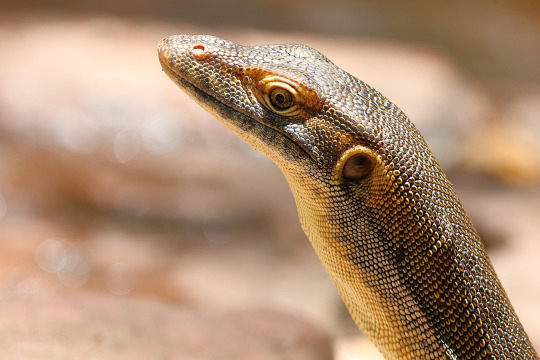
(Image: A Merten’s water monitor (Varanus mertensi) by Graham Winterflood via Wikipedia)
If you like what I do, consider leaving a tip or buying me a ko-fi!
#merten's water monitor#squamata#Varanidae#monitor lizards#goannas#squamates#lizards#reptiles#uncharismatic facts
126 notes
·
View notes
Text
Spectember D23: Camouflage/Crypsis
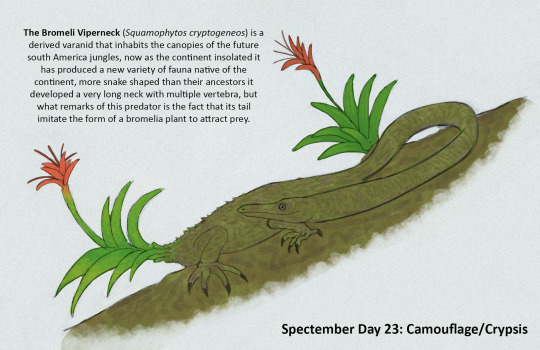
75 million years hence, the canopies of south America jungles dominated by birds, mammals and reptiles species that are somewhat resembling animals of the modern age, through after many radiations and mass extinctions they barely relate to any other of these modern species, arboreal mammals now are composed of derived descendants of rodents, many derived shrews that resemble either carnivoran or xenathrans and the still standing marsupials, birds like passerines or parrots have diversified too, some barely looking like their ancestors, and many types of lizards, quite dominant some endothermic varanids and even geckoes, but there was also another radiation of varanids that became venomous that now have tried another strategy to hunt down their prey.
The Bromeli Viperneck (Squamophytos cryptogeneos) is part of a very diverse group of ambush predatory varanids, many are ground dwelling and inhabit many of the environments that extend across the south American isolated continent, through this is one of few species that colonized the canopy of the tree, the most specialized as well thanks to their peculiar method of mimicry, most of the body remains unnoticeable for any potential prey as is colored like the branch it holds on but its tail has modified in a way it imitates a Bromelia plant, one of the many common arboreal species of plants that still hangs, they often attract pollinators of diverse forms, and so the Bromeli Viperneck takes advantage of its disguise more with a special musk that emit a similar odor to the plant helps to dissimulate further and so when, as it just stand still until a pollinator approach close to its tail, being ready it strikes with its long neck and inject a potent venom to kill fast the victim, providing a food that will last some months until it needs to feed again.
28 notes
·
View notes
Text

The Monitory Lizard, Lacerta monitor [Pl. 21] | The Naturalist's Miscellany v.1 | Biodiversity Heritage Library | Flickr
#george shaw#frederick polydore nodder#illustration#vintage illustration#scientific illustration#animal illustration#varanidae#varanus varius#lace monitor
5 notes
·
View notes
Text

Weird little varanid I drew at work
8 notes
·
View notes
Text




Argus or Yellow-spotted Monitor Lizards (Varanus panoptes), RASSLIN!!!, family Varanidae, Cape York, QLD, Australia
photographs by N Stock/AWC
746 notes
·
View notes
Text

A perentie (Varanus giganteus) in Australia
by Angus McNab
#perentie#monitors#monitor lizards#lizards#reptiles#varanus giganteus#varanus#varanidae#squamata#reptilia#chordata#wildlife: australia#wildlife: oceania
212 notes
·
View notes
Text
#1995 - Varanus tristis - Black-headed Monitor

AKA mournful monitor, freckled monitor or racehorse monitor, although it shares that last common name with the similar Gould's Monitor.
A small goanna native to much of Australia, from Perth to pretty much anywhere north. Around Perth the adults are predominantly black, as here, but elsewhere they're increasingly spotted.
The diet is varied, and varies from area to area as well. Smaller reptiles, amphibians, birds, insects, eggs, and mammals are all fair game.
The one that lived in the roof of the field station on Culeenup Island was definately still there (we heard it moving around) but on previous visits club members got to meet it in person when it descended from the roof to glower.
The breeding season is in November, at which point pairs start sharing the same tree (or roof, presumably) before laying as many as 17 eggs in December, which hatch in February or March.
2 notes
·
View notes
Text
I love komodo dragons!! Who doesn't love a giant lizard? I have always respected them, but finding out that their teeth have iron edges is even more impressive. It's awesome. Much respect to the komodo dragons!! 🙏🏼🫡😍
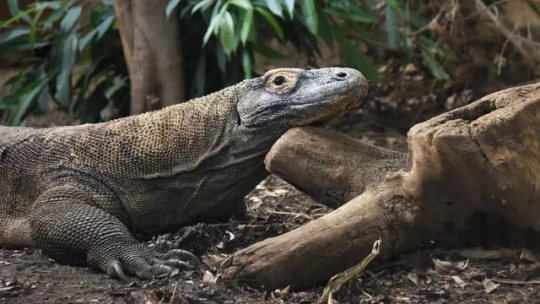
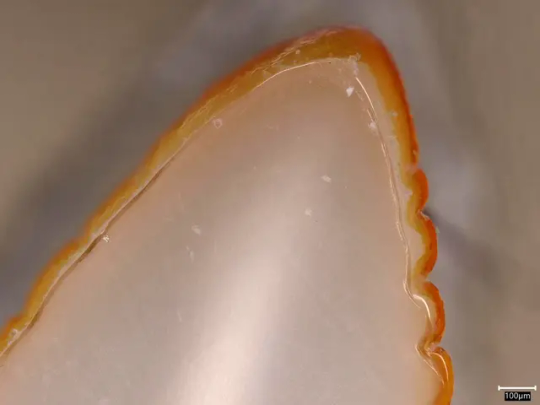
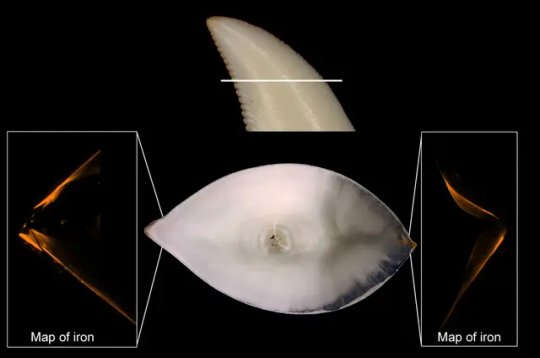
Komodo dragons have iron-tipped teeth, new study shows
Komodo dragons, the world’s largest species of lizard, have iron-tipped teeth that help them to rip their prey apart, according to new research. The metal is concentrated in the cutting edge and tips of their curved, serrated teeth, staining them orange, scientists wrote in a paper published Wednesday in the journal Nature Ecology & Evolution. Komodo dragons are native to Indonesia and weigh around 80 kilograms (176 pounds) on average. They eat almost any kind of meat and are known as deadly predators...
Read more: https://www.cnn.com/2024/07/24/science/komodo-dragons-iron-teeth-scli-intl/index.html
#komodo dragon#monitor lizard#reptile#asia#lizard#varanus#varanidae#herpetology#iron tipped teeth#respect#impressive#awesome#amazing creature#love#happiness#thank you#knowledge#sharing
13K notes
·
View notes
Text


she is everything to me

and he is Big
8 notes
·
View notes
Text



Komodo Dragon (Varanus komodoensis) - (c) SaritaWolf - please do not repost
0 notes